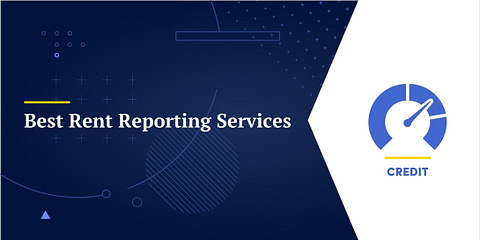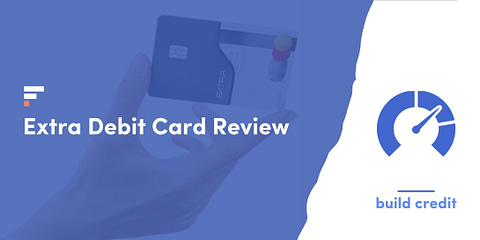According to a 2019 study, over 137 million Americans reported medical financial hardships within the preceding 12-month period[1]. Given the financial impact of unexpected medical expenses, it’s no surprise that many Americans are worried about medical bills affecting their credit scores. The concern is justified: medical debt accounts for about half of Americans’ collection accounts [2].
Most Americans have figured out that they have some degree of control over their credit scores. If you budget carefully, pay your bills on time, and manage your finances well. It’s terrifying to think that years of hard work could be demolished by a single event that you can’t possibly prepare for, but it has happened to many people.
Let’s look at some information that provides insight into the relationship between medical bills and your credit score.
Medical Bills and Your Credit
Medical debt has unique features that affect its impact on your credit. Let’s look at a few of them.
Most Medical Providers Don’t Report to Credit Bureaus
It’s important to know that many, if not most, medical providers do not report to credit reporting agencies. They’re busy caring for patients, and their billing departments have enough to do without the added burden of compliance with the Fair Credit Reporting Act.
That means that as long as your debt stays with the original provider, it probably won’t end up on your credit report. It will not affect your credit score.
Collection Agencies are a Different Story
If a provider cannot get you to pay a medical debt, the account will usually be sent to a collection agency. As you may suspect, collection agencies have no problem playing hardball. They will almost always report the debt to a credit reporting agency. That’s when you need to worry about having your medical bills affect your credit score.
However, you do still have one ace in your pocket when it comes to protecting your credit from overdue medical bills.
Medical Debt is Not Like Other Debts
The rules on reporting medical debt changed as a result of a 2017 settlement between the three major credit reporting companies and the New York Attorney General’s office. Credit reporting agencies agreed not to list a medical debt on your credit report until it is a minimum of 180 days past due. They also remove medical debts from your credit record when they are paid, instead of waiting for seven years.
There are two primary reasons for these policy changes.
- Medical debt is often unavoidable. It typically doesn’t come from a decision to borrow or spend frivolously. It does not indicate irresponsible use of credit.
- There is often a third party involved with medical debt: insurance companies. Insurance company processing times or disputes often cause late payments.
Recent scoring models from both FICO and VantageScore also reduce the weighting that medical debt has on your credit score.
Even with those changes, medical debts in collections can harm your credit. Here’s what you can do to prevent that.
How to Keep Medical Bills from Crushing Your Credit
If you’re struggling to pay medical bills, the last thing you want to do is ignore them. That will only increase the probability of your medical bills ending up in collections and damaging your credit report.
Try these tips for getting the bills resolved instead.
Get Help
The first step you may want to take is to look into ways to get help paying medical bills. Double-check the bill for errors, and don’t be afraid to negotiate with the provider to reduce the debt or work out a payment plan.
Some medical providers have grant funds available or other options to help you pay your medical bills. Most are happy to give you options to get help paying your medical bills if they are available.
Work with the Medical Provider
What if there are no options for help and you have medical bills you cannot pay? In this case it’s important to attempt to work with the medical provider. If you’re cooperating and trying to pay, the provider is much less likely to send your account to a collection agency.
Working out a plan to pay your bill can help you pay the debt off in a timely manner.
☝️ If you are making the payments as agreed, your account will probably not go to collections or appear on your credit report.
Be Firm with Collection Agencies
Collection agencies are much more aggressive and much less understanding than healthcare providers. That’s why you should try to keep your account with the original provider. If you have medical debt in collections, there are still things you can do.
For instance, you try a settlement: ask the collection agency to accept an amount lower than the balance due as payment in full. You could add a stipulation to your deal. Ask that the collection agency not report the debt to the credit bureaus even if it takes longer than 180 days to pay.
Keep in mind that these negotiations are usually more effective when the collection agency first contacts you. If you avoid them, tempers can flare, making negotiations less feasible.
You’ll need to be polite but insistent and firm when dealing with most collection agents. Don’t let them bully you, and know your rights. If you do work out a deal with a collection agency, be sure to get the details in writing before paying the bill.
☝️ Make sure you can track and prove your payments. When you pay the debt off, get written confirmation from the collection agency.
What not To Do
There are two ways to pay medical debts that you should avoid using at all costs.
Don’t Use Retirement Funds
It might be tempting to withdraw retirement funds to pay your bills. That is usually a mistake.
Retirement accounts cannot be seized in a bankruptcy. Medical debts can be discharged in a bankruptcy. Your retirement accounts are an essential part of your financial future. Filing for bankruptcy is probably a better option than using your retirement assets to pay medical debts.
☝️ Remember that if you liquidate a retirement account to pay medical debt you are not only losing the money in the account, but all of the investment gains that the money could earn by the time you retire.
Don’t Use a Loan or Credit Card
Some people get a loan or use a credit card to pay off medical debt. This is generally a bad idea. Here are two important reasons why:
- Most medical debts don’t accumulate interest. Loans do charge interest, and credit cards charge very high interest.
- If the medical debt does end up on your credit report, it’s still better than other debts. Credit scoring models typically give medical debt a lower weight (impact) when generating credit scores.
So while it may be tempting to reduce stress caused by calls from medical providers or collection agencies by borrowing money to pay your medical bills, try to avoid it.
☝️ It’s better to make interest-free payments to a medical provider or even a collection agency than to watch interest piling up on a credit card or loan.
Don’t Panic
Medical debt can be terrifying, especially if you’ve spent years cultivating a good credit record. All of that work may seem to be going down the drain when you find yourself facing a debt that you couldn’t possibly anticipate or pay.
Don’t panic. Know the rules on medical debt. Take every opportunity to reduce your costs, and focus on working out a deal that prevents your account from going to collections. You can still escape with little or no damage!























